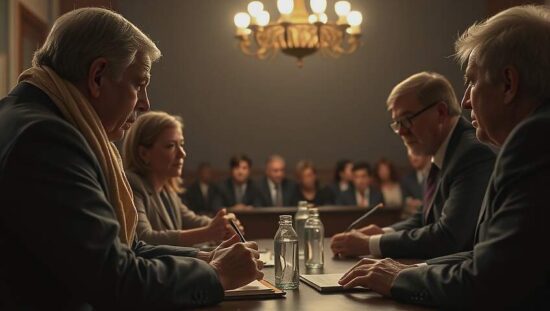Negotiations surrounding a proposed EU ban on Russian gas imports have intensified, revealing deep divisions among member states and highlighting the complex geopolitical calculations underpinning the move. According to a leaked report from the German EU embassy, securing a majority for the ban has proven significantly more challenging than initially anticipated.
While 19 member states, including Germany, Poland, Finland and Belgium, are reportedly backing the European Commission’s draft text, key nations like France, Spain and Italy remain hesitant, demanding amendments. Hungary, under the leadership of President Viktor Orbán, a vocal supporter of Russia, has outright rejected the proposal. This resistance underscores the lingering influence of Russia within the EU and the political tightrope walk required to reach a unified stance.
The ambition of the ban, slated to take effect by the end of 2027, is also a source of contention. Several nations, including Sweden, expressed a desire for a more aggressive timeline, demonstrating a divergence in perspectives on the necessary speed and strength of action against Russia.
The political ramifications extend beyond the immediate vote. The proposed ban represents a significant escalation in the EU’s response to Russia’s ongoing aggression and aims to reduce the bloc’s economic dependence on Moscow. However, concerns remain about the impact on energy security and potential economic fallout for countries heavily reliant on Russian gas.
Last year, Russian gas accounted for approximately 19% of all EU gas imports, valued at over €15 billion. While Germany has ceased direct imports, the lingering presence of Russian liquefied natural gas (LNG) within the EU’s internal gas market remains a concern, potentially impacting other member states. The German government, under Economy Minister Katheine Reiche, has publicly expressed support for the ban and aims to vote in favour of the draft text.
The Green Party in Germany has welcomed the government’s clear position, yet the leaked documents expose the fragility of consensus needed to move forward. Securing a workable compromise will require further concessions and careful navigation of the divergent interests at play, potentially impacting the timing and scope of the ban itself and exposing how reliant some EU nations remain on Moscow’s energy supply despite the geopolitical climate.





